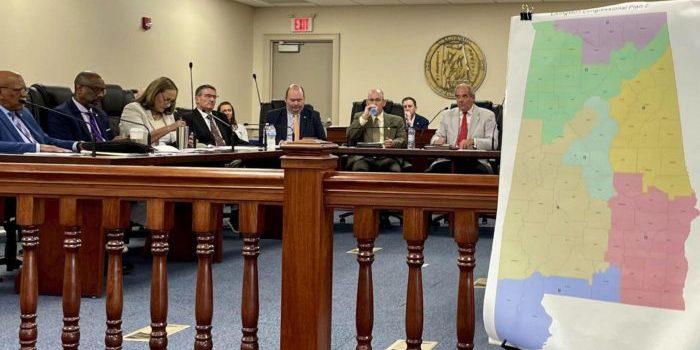(The U.S. Supreme Court won’t intervene in the fight over Alabama’s congressional maps.
On Tuesday the court denied a bid by state lawmakers for another look at the fight about the state having a second black majority congressional district.
Several groups sued to overturn the state’s 2021 congressional maps, which had one of seven districts majority black.
It was a last-ditch effort by the state to keep maps drawn during July’s special session and rejected by a three-judge federal panel earlier this month.
The U.S. District Court will pick between three congressional maps drawn by a court-appointed special master and a cartographer.
All three will create black-majority districts and be a likely pickup for Democrats.
“This is a victory for all Americans, particularly voters of color, who have fought tirelessly for equal representation as citizens of this nation,” former Attorney General Eric Holder said in a release.
Holder, who oversees the National Democratic Redistricting Committee, has been laser-focused on waging lawfare attacks with the express purpose of securing political advantages for Democrats through court-enforced gerrymandering, relying in part on a massive war-chest conveyed to him after former President Barack Obama transferred over his extra campaign funds to the activist group.
“Even with this court’s landmark decision to uphold Section 2 of the Voting Rights Act, Alabama Republicans have defied court orders at every turn by refusing to enact a map that gives Black Alabamians the opportunity to elect a candidate of their choice in two districts,” Holder said.
“These shameful, odious efforts to diminish the rightful voting power of Black Alabamians have finally been defeated,” he continued. “As a result, we will see more representative maps in places that were once thought to be unreachable in the fight for fairness: Alabama, Louisiana, and Georgia. Justice has prevailed.”
On June 8, the Supreme Court issued a decision in Allen v. Milligan that said Alabama’s previously-drawn map violated the Voting Rights Act and ordered new maps that create an “opportunity district” for minority voters to cast ballots for the candidates of their choice.

